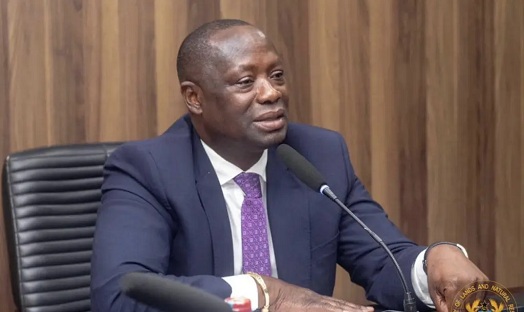The Ministry of Lands and Natural Resources, through the Minerals Commission, is establishing District Offices to bring mining governance services closer to the people.
“Indeed, decentralizing the mining permitting processes will deter people from engaging in illegal mining activities,” Mr. Emmanuel Armah-Kofi Buah, Minister of Lands and Natural Resources said.
He added that the Ministry had rolled out a new Excavator Import Licensing Regime in collaboration with the Driver and Vehicle Licensing Authority (DVLA), Ghana Revenue Authority (GRA), and the Minerals Commission.
As of the end of September, a total of 1,181 excavators had been registered, with 724 tracked.
The minister said this in speech delivered on his behalf by Mr. Elikem Kotoko, Deputy Chief Executive Officer of the Forestry Commission, at a two-day high-level national dialogue organized by the Media Foundation for West Africa (MFWA) in Koforidua, Eastern Region.
The dialogue aimed to mobilize citizen consensus on solutions to the galamsey crisis in Ghana.
Mr. Buah noted that the issue of galamsey had gone beyond environmental devastation and now posed serious health risks and a major threat to national survival.
He cited a recent press briefing by the Ghana Water Company Limited (GWCL), which revealed that water sources were polluted to treat, with turbidity levels reaching an alarming 12,000 Nephelometric Turbidity Units (NTU), far exceeding the maximum treatment threshold of 500 NTU.
He identified the main drivers of the menace as corruption among political officials and law enforcement agencies, which had undermined efforts to combat illegal mining.
Other contributing factors include limited public awareness of the environmental and health risks, weak enforcement of mining regulations, unemployment, poverty, and the high global demand for gold.
To address the situation, the government has revoked 278 small-scale mining licenses found to be fraught with irregularities.
Additionally, comprehensive legal and policy reforms are underway.
These include major amendments to the Minerals and Mining Act, 2006 (Act 703), and a review of the Minerals and Mining Policy (2014).
The reforms aim to strengthen local content and introduce a medium-scale licensing regime.
Mr. Buah emphasized that the efforts were essential to restoring Ghana’s land and water bodies to their pristine state.
Most Rev. Emmanuel Kofi-Fianu, Board Chairman of the National Peace Council, noted that, “We know the problems, we know the solutions. Our challenge is taking the next step of implementing what we know as the solutions.”
Research Report for the High-Level Stakeholders Dialogue on Solutions to the Galamsey Crisis in Ghana: Mobilizing Citizens Consensus was launched.
The report serves both as a research contribution and a call for policy renewal.
GNA





